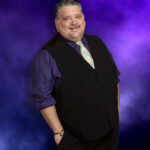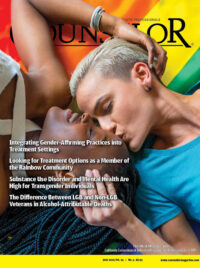Share

He was educated in both Greek and Latin, a monk but not a cleric; he was never an ordained priest. In his early years, he was admired by no less a person than Augustine of Hippo, who called him “a saintly man.” When he moved to Rome, he became concerned about the moral laxity in the city, believing it was partly the result of Augustine’s teachings concerning divine grace. Pelagius was concerned about the emphasis that Augustine placed upon God’s grace-the idea that since the Fall of Adam, every good thought or action was dependent upon God. We could do nothing on our own. There was no teaching that affirmed the need for our response. There was little teaching concerning human responsibility; that we need to be accountable for our behavior. He was particularly disturbed by a famous quotation from Augustine, “Give me what you command and command what you will.”
Pelagius believed that this saying discounted free will, turning man into a mere automaton. He soon became a critic of Augustine, disagreeing with him concerning original sin and the working of God’s grace in perfecting salvation. Pelagius argued that if human beings could discipline themselves in the way exemplified by Jesus, then they could remain perfect. He believed that grace needed to be connected with human choice. Pelagius’s personal discipline made him extremely puritanical, teaching a strict regimen to his disciples in order to ensure moral purity.
Pelagius was politically sensitive to the church of his day, and yet he was gently rebelling, carefully challenging its teachings. He affirmed the divine power that existed within the church, but he also suggested a comprehensive spirituality that was reflected in every human being-even those who were born before the time of Jesus (2012, p. 7–8).
About Me
Larry Hearn is a seasoned SUD counselor, licensed Religious Science Practitioner, and a committed advocate for healing and personal transformation. Armed with a Social Model Studies Certificate from the CCAPP Academy (formerly known as the CAARR Institute), education from Modesto Junior College, and certification from CCAPP, Larry boasts a robust 24-year background in addiction counseling. As a member of the California Coalition of Certifying Organizations (CCCO), he played an active role in shaping the California Code of Ethics and Sanctions Matrix.
Larry currently serves as Supervising Editor for Counselor Magazine and Media & Infrastructure Manager for the California Consortium of Addiction Programs and Professionals (CCAPP), where he combines his clinical insight with media and educational strategy to uplift the profession and support the workforce.
His passion extends to facilitating treatment and education groups, grief circles, and individual counseling, creating a secure and supportive environment for individuals to navigate recovery, grief, and emotional trauma. He enjoys training and mentoring SUD counselors. In his capacity as a licensed Religious Science Practitioner, he seamlessly integrates therapeutic and spiritual modalities, guiding individuals on a journey toward enduring recovery and inner peace. Beyond addiction counseling, Larry underscores the significance of grief healing and personal growth in his compassionate approach.











 Counselor Magazine is the official publication of the California Association of Addiction Programs and Professionals (CCAPP). Counselor offers online continuing education, article archives, subscription deals, and article submission guidelines. It has been serving the addiction field for more than thirty years.
Counselor Magazine is the official publication of the California Association of Addiction Programs and Professionals (CCAPP). Counselor offers online continuing education, article archives, subscription deals, and article submission guidelines. It has been serving the addiction field for more than thirty years.